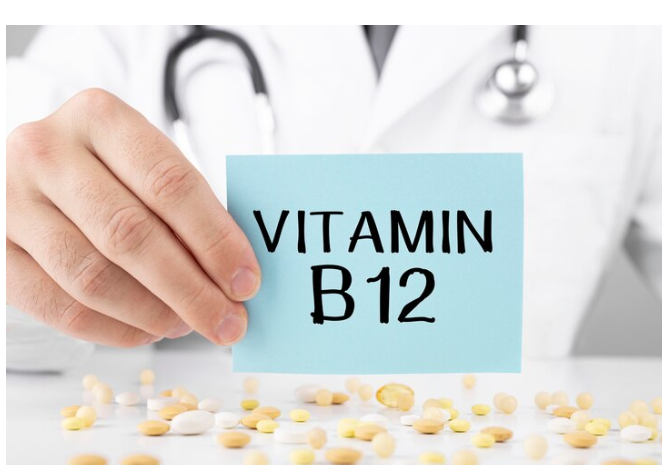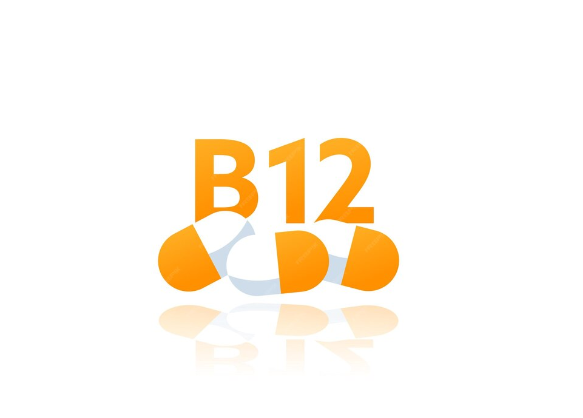Introduction to Vitamin B12 Deficiency
Vitamin B12, also known as cobalamin, plays a crucial role in the body’s overall health and functioning. It is essential for the production of red blood cells, DNA synthesis, and the proper functioning of the nervous system. This vitamin also aids in converting the food we eat into glucose, which provides the energy our bodies need to function effectively. Given its vital roles, maintaining adequate levels of B12 is crucial for our overall well-being. B12 is primarily obtained through animal-based foods such as meat, dairy products, and eggs, making it particularly important for individuals following vegetarian or vegan diets to monitor their B12 intake.
When the body lacks sufficient Vitamin B12, it can lead to a range of symptoms, collectively known as B12 deficiency symptoms. These symptoms can vary widely, affecting multiple body systems. Common symptoms include fatigue, weakness, and anemia, which result from the body’s inability to produce enough healthy red blood cells. Neurological issues such as numbness, tingling, memory loss, and mood changes can also occur, highlighting the vitamin’s importance in maintaining nervous system health. Gastrointestinal problems like mouth ulcers and digestive disturbances further underscore the widespread impact of B12 deficiency. Recognizing these symptoms early and addressing the deficiency through dietary changes or supplements is essential to prevent more severe health complications.
Common B12 Deficiency Symptoms
Vitamin B12 deficiency symptoms can manifest in a variety of symptoms, often starting with fatigue and weakness. This tiredness occurs because B12 is crucial for the production of red blood cells, which transport oxygen throughout the body. Without sufficient B12, red blood cell production is impaired, leading to anemia. This lack of oxygen can leave individuals feeling persistently exhausted and weak, even after adequate rest. Additionally, anemia can cause shortness of breath and dizziness, particularly during physical activity, as the body struggles to supply enough oxygen to tissues and organs.
Another visible sign of B12 deficiency is changes in skin color, such as paleness or a jaundiced appearance. This occurs because a lack of B12 can cause a breakdown of red blood cells, releasing bilirubin, which can lead to yellowing of the skin and eyes. Moreover, the deficiency can also cause heart palpitations and breathlessness, further complicating cardiovascular health. These symptoms arise because the heart has to work harder to circulate a reduced number of oxygen-carrying red blood cells, putting extra strain on the cardiovascular system.
Neurological B12 Deficiency Symptoms
Vitamin B12 deficiency can lead to a range of neurological symptoms, often manifesting as peripheral neuropathy, which includes numbness and tingling in the hands and feet. This occurs because Vitamin B12 is crucial for maintaining the health of nerves, and its deficiency can cause damage to the myelin sheath, a protective covering of the nerves. Additionally, B12 plays a vital role in cognitive function. Insufficient levels can lead to memory loss and cognitive decline, affecting concentration, decision-making, and overall mental clarity. These symptoms can be particularly concerning as they may mimic other neurological disorders, making early detection and treatment essential.
Mood changes and depression are also common neurological symptoms associated with B12 deficiency. Vitamin B12 is involved in the synthesis of neurotransmitters, which are chemicals that transmit signals in the brain and influence mood regulation. A deficiency can lead to reduced production of these neurotransmitters, contributing to symptoms of depression, irritability, and other mood disorders. Moreover, severe B12 deficiency can cause difficulty walking and balance problems, as it affects the central nervous system’s ability to coordinate movement. These symptoms highlight the importance of adequate Vitamin B12 levels for overall neurological health and well-being.
Gastrointestinal B12 Deficiency Symptoms

Gastrointestinal symptoms of B12 Deficiency Symptoms can manifest in various ways, often affecting the mouth and digestive tract. One common symptom is glossitis, which is the inflammation of the tongue. This condition can cause the tongue to appear swollen, red, and smooth, leading to discomfort and difficulty in eating or speaking. Alongside glossitis, individuals may also experience mouth ulcers, which are painful sores that can occur on the gums, tongue, or inside of the cheeks. These oral symptoms are not only uncomfortable but can also be an early indication of a more systemic issue related to Vitamin B12 deficiency.
In addition to oral symptoms, B12 Deficiency Symptoms can significantly impact digestive health. This vitamin plays a crucial role in the proper functioning of the digestive system, and its deficiency can lead to issues such as constipation or diarrhea. These digestive disturbances can further contribute to a loss of appetite and unintentional weight loss, as the body’s metabolism and energy levels are affected. In severe cases, chronic digestive problems can lead to malnutrition, exacerbating the deficiency and its symptoms. It’s essential to recognize these gastrointestinal signs early and seek medical attention to address and manage the underlying deficiency, thereby preventing long-term health complications.
Causes of B12 Deficiency
Vitamin B12 Deficiency Symptoms can arise from several causes, with dietary factors being a significant contributor. B12 is primarily found in animal products such as meat, dairy, and eggs, making it challenging for individuals following vegan or strict vegetarian diets to obtain adequate amounts. Without proper supplementation or consumption of fortified foods, these groups are at a higher risk of deficiency. It is crucial for those on plant-based diets to be aware of their B12 intake and consider supplements or fortified alternatives to maintain healthy levels.
Malabsorption issues also play a critical role in B12 deficiency. Conditions such as pernicious anemia, which affects the stomach’s ability to produce intrinsic factor necessary for B12 absorption, can lead to significant deficiencies. Additionally, gastrointestinal disorders like celiac disease or Crohn’s disease can impair the absorption of nutrients, including B12, from the digestive tract. Certain medications, such as proton pump inhibitors (PPIs) and metformin, can further hinder B12 absorption by affecting stomach acid production or intestinal absorption processes. Recognizing these risk factors is essential for proper diagnosis and management of B12 deficiency.
Diagnosing B12 Deficiency
Diagnosing Vitamin B12 deficiency often begins with a detailed analysis of symptoms, as these can provide crucial clues about the underlying condition. Patients may present with a range of symptoms, including fatigue, neurological issues like numbness and tingling, cognitive impairments, and gastrointestinal problems. Doctors will typically conduct a thorough review of these symptoms, along with a patient’s medical history, diet, and lifestyle, to determine the likelihood of B12 deficiency. This symptom-based analysis is essential because B12 deficiency can mimic other health conditions, making an accurate diagnosis critical for effective treatment.

Blood tests are a cornerstone in diagnosing B12 deficiency. Common tests include measuring serum B12 levels, methylmalonic acid (MMA), and homocysteine levels. Low serum B12 levels directly indicate deficiency, while elevated MMA and homocysteine levels can suggest B12 deficiency even when serum levels are borderline. Early detection through these tests is crucial, as it allows for timely intervention, potentially preventing severe and irreversible complications such as neurological damage and cognitive decline. Early diagnosis not only facilitates effective treatment but also significantly improves long-term health outcomes for patients.
Treatment and Management of B12 Deficiency
Treating B12 deficiency often involves a combination of B12 supplements and dietary changes. There are various forms of B12 supplements available, including oral tablets, sublingual (under-the-tongue) tablets, nasal sprays, and injections. The choice of supplement often depends on the severity of the deficiency and the individual’s specific absorption issues. For those with mild deficiencies, oral or sublingual supplements may suffice, while more severe cases, especially those involving malabsorption, might require regular injections or high-dose oral supplements to restore B12 levels effectively.
In addition to supplements, incorporating B12-rich foods into the diet is a key component of managing and preventing B12 deficiency. Foods like meat, fish, dairy products, and fortified cereals are excellent sources of B12. For vegetarians and vegans, fortified foods or supplements are crucial since plant-based diets typically lack adequate B12. Regular monitoring of B12 levels is also essential, particularly for individuals at higher risk of deficiency, such as older adults or those with gastrointestinal conditions. Periodic blood tests can help ensure that treatment is effective and adjust supplementation as needed, maintaining optimal B12 levels and preventing long-term complications.
Preventing B12 Deficiency
Preventing B12 deficiency is crucial, especially for high-risk groups such as vegans, vegetarians, and older adults. These groups are more susceptible due to dietary restrictions or age-related changes in nutrient absorption. For vegans and vegetarians, incorporating fortified foods like plant-based milk, cereals, and nutritional yeast can help boost B12 intake. Additionally, supplements are often necessary to meet daily requirements, as B12 is primarily found in animal products. Older adults, on the other hand, may experience reduced stomach acid production, impairing B12 absorption from food. They can benefit from B12 supplements or fortified foods, as synthetic B12 is more easily absorbed.
A balanced diet plays a vital role in preventing B12 deficiency, as it ensures an adequate intake of not only B12 but also other essential nutrients that support overall health. Including a variety of foods rich in B12, such as fish, meat, dairy products, and eggs, can help maintain healthy B12 levels. For those unable to consume these foods, fortified alternatives and supplements are key. Regular health check-ups are also crucial, as they help monitor B12 levels and identify any deficiencies early. Routine screenings, particularly for those in high-risk groups, can prevent the long-term complications associated with B12 deficiency, such as neurological damage and anemia.
Conclusion
Vitamin B12 deficiency can manifest through a range of symptoms, including fatigue, weakness, and pale skin, as well as more severe neurological issues like numbness, memory loss, and difficulty walking. Gastrointestinal symptoms such as glossitis and digestive problems can also indicate a lack of B12. Managing this deficiency typically involves incorporating B12-rich foods into your diet, such as meat, dairy, and fortified cereals, or taking supplements as prescribed by a healthcare professional. Regular monitoring and prompt treatment are crucial to prevent serious health complications and improve quality of life.
Awareness of B12 deficiency is vital for maintaining overall health and well-being. If you experience symptoms such as persistent fatigue, memory issues, or unexplained digestive problems, it’s important to consult with a healthcare provider for accurate diagnosis and appropriate treatment. Early detection and management can help avoid long-term effects and ensure that your body gets the essential nutrients it needs. Take proactive steps today by getting tested and seeking professional advice to address any potential B12 deficiencies.
FAQ
What are B12 deficiency symptoms?
B12 deficiency symptoms can vary widely but commonly include fatigue, weakness, pale skin, shortness of breath, dizziness, and numbness or tingling in the hands and feet. Other symptoms may involve difficulty walking, memory problems, mood changes, and a swollen, inflamed tongue.
How do I know if I have a B12 deficiency?
To determine if you have a B12 deficiency, you should consult with a healthcare provider who can perform a blood test. Symptoms may be indicative of a deficiency, but a blood test is necessary for a definitive diagnosis.
What causes B12 deficiency?
B12 deficiency can be caused by various factors including poor dietary intake, malabsorption issues (such as those due to pernicious anemia or gastrointestinal disorders), certain medications, or conditions affecting the digestive system.
Can B12 deficiency cause serious health problems?
Yes, if left untreated, B12 deficiency can lead to serious health problems such as nerve damage, memory loss, and anemia. It’s important to address symptoms early to prevent long-term complications.

